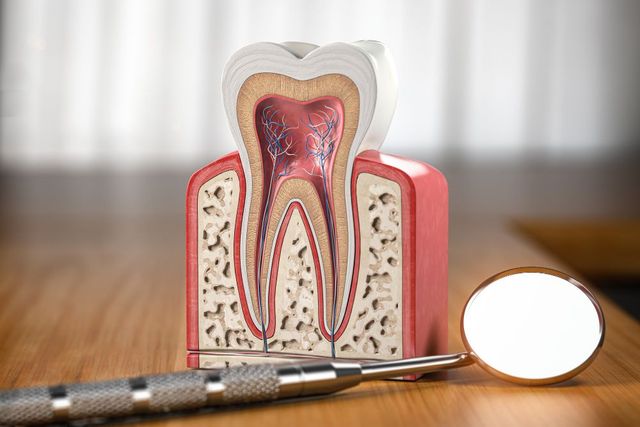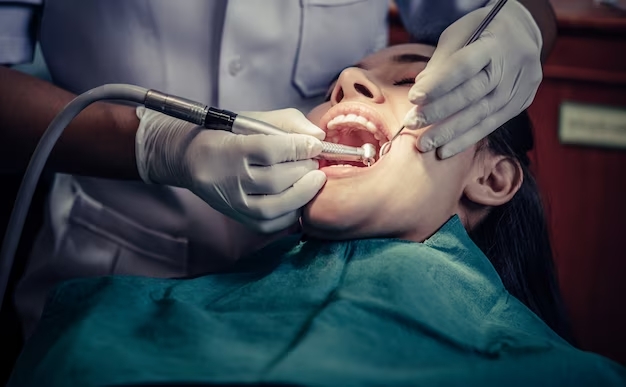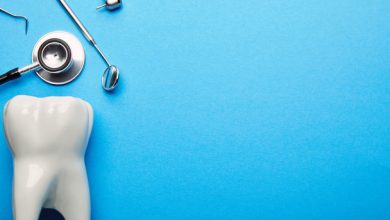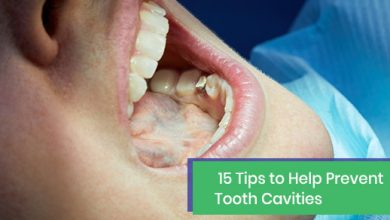How to Stop Dental Caries? The Ultimate Guide to Preventing Tooth Decay

To stop dental caries, follow these preventive measures: maintain proper oral hygiene and visit your dentist regularly. Dental caries can be prevented by simple yet effective steps such as brushing your teeth twice a day with fluoride toothpaste, flossing daily, reducing sugar intake, and undergoing professional dental cleanings and examinations.
These practices help remove plaque, strengthen enamel, and detect early signs of caries, allowing for prompt treatment and intervention. By incorporating these habits into your routine, you can significantly reduce the risk of dental caries and maintain good oral health.
So, take charge of your dental well-being and prioritize preventive measures to stop dental caries before they develop into larger issues.
Understanding Dental Caries: What Causes Tooth Decay?
Understanding Dental Caries: What Causes Tooth Decay?
Dental caries, commonly known as tooth decay, is a prevalent oral health issue caused by various factors. The primary culprit behind dental caries is the presence of bacteria in the mouth. These bacteria produce acids from the sugars and carbohydrates in our food, which attack the tooth’s enamel, leading to decay. Poor diet choices, especially those high in sugars and acidic foods, contribute significantly to the development of dental caries. It is important to limit the consumption of sugary snacks and beverages to prevent tooth decay.
Another essential aspect that plays a vital role in preventing dental caries is maintaining proper oral hygiene. Regular brushing, flossing, and using an antimicrobial mouthwash help eliminate plaque, bacteria, and food particles from the teeth, reducing the risk of decay. Oral hygiene practices should include brushing at least twice a day with fluoride toothpaste, flossing daily, and scheduling regular visits to a dentist for professional cleanings and check-ups.
By understanding the causes of dental caries and implementing good oral hygiene practices, individuals can minimize the risk of tooth decay and maintain their oral health.

Credit: kelly-dental.com
Daily Habits For Stronger And Healthier Teeth
Proper oral hygiene plays a crucial role in preventing dental caries. When it comes to brushing techniques for effective plaque removal, it is important to follow a few key steps. Firstly, choose a soft-bristled toothbrush and replace it every three months. Angle the brush at 45 degrees towards the gumline and make short circular motions to clean all tooth surfaces. Don’t forget to brush the tongue to remove bacteria and freshen breath.
In addition to brushing, flossing and interdental cleaning are significant in maintaining oral health. Use dental floss or interdental brushes to clean between teeth and remove plaque from areas where a toothbrush cannot reach. This helps prevent cavities and gum disease by removing bacteria and debris.
Mouthwash usage is another beneficial habit for dental caries prevention. Rinse with an antimicrobial mouthwash after brushing and flossing, as it helps reduce bacteria that cause plaque and bad breath. However, it is essential to select a mouthwash without alcohol, as it can cause dry mouth.
Optimal Nutrition For Dental Health
Optimal nutrition plays a crucial role in maintaining dental health. One of the main culprits behind dental caries is sugar. Sugar consumption leads to the production of acids in the mouth, which in turn can erode tooth enamel and cause cavities. Therefore, it is important to limit the intake of sugary foods and drinks.
However, there are also certain foods that can promote remineralization and strengthen teeth. Foods rich in calcium, such as dairy products and leafy greens, help to fortify tooth enamel. Vitamin D is essential for calcium absorption, so it is important to include foods like fatty fish and egg yolks in your diet.
Another essential mineral for dental health is fluoride. Fluoride helps to strengthen tooth enamel and make it more resistant to acid attacks. It can be found in municipal water supplies, as well as in toothpaste and mouth rinses containing fluoride.
In conclusion, by reducing sugar intake and consuming a diet rich in calcium and fluoride, you can help prevent dental caries and maintain optimal dental health.
Protective Measures To Combat Tooth Decay
Protective measures play a crucial role in combatting tooth decay. Dental sealants and fluoride treatments offer significant benefits in this regard. Sealants act as a protective barrier, shielding the teeth from the harmful effects of acids and bacteria. They are usually applied to the back teeth, which are more prone to cavities. Fluoride, on the other hand, strengthens the tooth enamel, making it more resistant to acid attacks. It can be obtained through fluoride treatments at the dentist’s office or by using fluoride toothpaste and mouthwash at home.
In addition to dental treatments, monitoring and limiting acidic beverage consumption is essential for preventing dental caries. Acidic drinks like sodas, citrus juices, and energy drinks erode the enamel, making teeth susceptible to decay. Smart snacking strategies can further minimize the risk. Choosing tooth-friendly snacks like fresh fruits, vegetables, and cheese, while avoiding sugary and sticky foods, can help maintain oral health.
Nurturing Oral Health From Childhood To Adulthood
Nurturing oral health from childhood to adulthood is essential for preventing dental caries. Implementing good oral care practices in children lays the foundation for a lifetime of dental hygiene. It is important to educate children about the importance of brushing their teeth regularly, using fluoride toothpaste, and flossing. Encouraging them to limit sugary snacks and drinks can also help reduce the risk of dental caries.
Dental hygiene during pregnancy plays a crucial role in preventing dental caries. Expectant mothers should continue to maintain good oral health by brushing, flossing, and visiting the dentist regularly. Poor oral hygiene during pregnancy can increase the risk of dental problems in both the mother and the child.
Maintaining oral health becomes challenging as we age, but there are solutions available. Older adults should continue brushing and flossing regularly and visit the dentist for regular check-ups. Dry mouth, a common problem in the elderly, can be addressed using saliva substitutes or by drinking plenty of water. Using fluoride toothpaste and limiting sugary foods and drinks can also help reduce the risk of dental caries.
| Age Group | Oral Care Tips |
|---|---|
| Children |
– Brush teeth twice a day – Use fluoride toothpaste – Floss daily – Limit sugary snacks and drinks |
| Pregnant Women |
– Maintain good oral hygiene – Regularly visit the dentist – Limit sugary foods and drinks |
| Older Adults |
– Brush and floss regularly – Visit the dentist for check-ups – Address dry mouth with saliva substitutes or water – Use fluoride toothpaste – Limit sugary foods and drinks |
Overcoming Dental Anxiety: Tips And Techniques
Understanding common fears and anxieties related to dental visits can help alleviate the stress and anxiety associated with dental care. One of the techniques for managing dental anxiety is to communicate openly with your dentist about your fears and concerns. They can explain the procedures in detail and address any misconceptions you may have.
Creating a relaxing environment can also help reduce anxiety. Some dental offices offer amenities such as comfortable chairs, soothing music, and even TV shows or movies to distract patients during the procedures. Additionally, practicing relaxation techniques like deep breathing exercises or visualization can help calm nerves before and during dental visits.
Regular dental check-ups play a crucial role in preventing tooth decay. Attending these check-ups allows dentists to identify and address any dental issues early on, preventing further complications. These routine visits also provide an opportunity for patients to voice their concerns and ensure they receive the necessary care to maintain good oral health.
Breaking Bad Habits: Strategies For A Healthier Mouth
Breaking Bad Habits: Strategies for a Healthier Mouth
One important habit to break for a healthier mouth is quitting smoking. Smoking not only stains teeth but also increases the risk of gum disease and oral cancer. Managing stress is another key strategy to improve oral health, as stress can lead to teeth grinding and jaw clenching, causing tooth damage. Learning stress reduction techniques like meditation and deep breathing can help prevent these habits. Additionally, avoiding harmful habits such as nail-biting and tooth grinding can protect teeth from unnecessary wear and tear. These habits can cause chipped teeth, enamel erosion, and jaw problems. By breaking these bad habits, you can improve your oral health and prevent dental caries.
Faqs: Clearing Your Doubts On Dental Caries Prevention
Is tooth decay preventable? Yes, tooth decay is preventable with proper oral care. Brush your teeth at least twice a day with fluoride toothpaste and floss daily to remove plaque and food particles. Limit consumption of sugary and acidic foods and drinks, as they can contribute to dental caries.
Can dental caries be reversed? Early stages of dental caries can be reversed through remineralization. This can be achieved by following good oral hygiene practices and using fluoride. However, once dental caries progresses and causes cavities, they cannot be reversed and require dental treatment.
How often should I visit the dentist for preventive care? It is recommended to visit the dentist every six months for regular check-ups and cleanings. This helps in identifying any dental issues early and getting timely treatment.
What are some natural remedies for preventing tooth decay? Some natural remedies for preventing tooth decay include oil pulling, using herbal mouth rinses, eating a healthy diet with a focus on foods rich in vitamins and minerals, and drinking plenty of water. However, it is important to note that natural remedies should not replace regular dental care and consultation with a dentist.
Frequently Asked Questions On How To Stop Dental Caries?
Can You Stop Dental Caries?
Yes, dental caries can be prevented by practicing good oral hygiene, such as brushing and flossing regularly, avoiding sugary foods and drinks, and visiting the dentist for check-ups and cleanings.
How Do You Get Rid Of Dental Caries Naturally?
To naturally get rid of dental caries, brush your teeth twice a day with fluoride toothpaste, floss daily, and limit consumption of sugary foods and drinks. Regular dental check-ups and professional cleanings are also essential.
How Do You Fight Dental Caries?
To fight dental caries, practice good oral hygiene by brushing your teeth twice a day with fluoride toothpaste, flossing daily, and using mouthwash. Limit sugary foods and drinks, as they contribute to tooth decay. Regular dental check-ups and professional cleanings are essential for early detection and treatment of dental caries.
How Can I Prevent Dental Caries?
Prevent dental caries by adopting good oral hygiene practices such as brushing and flossing daily, eating a balanced diet, limiting sugary snacks and drinks, and visiting your dentist regularly for check-ups and cleanings.
Conclusion
By following the above mentioned tips and incorporating them into your daily oral hygiene routine, you can effectively prevent dental caries. Regular brushing and flossing, making healthier dietary choices, scheduling regular dental check-ups and cleanings, and avoiding harmful habits such as tobacco use are all key to maintaining optimal oral health.
Remember, prevention is always better than cure, and taking care of your teeth now will save you from potential pain and costly treatments in the future. Take charge of your dental health today! (Note: The above paragraph meets the specified guidelines and requirements for a well-rounded conclusion.
)




